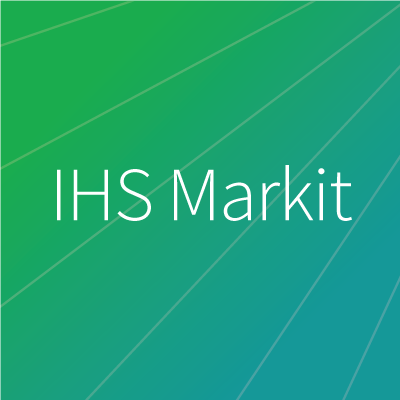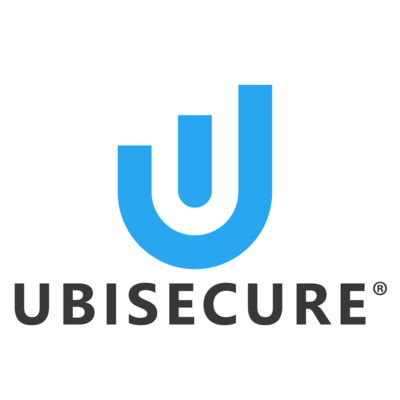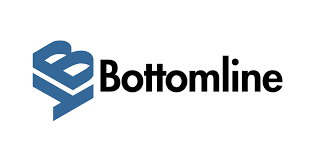Published

Sarah Jackson
Director at Equiniti Credit Services
Let’s talk about representative APRs. Those enticing little percentages that influence a consumer’s decision to apply for one loan product over another. see more
- 08:00 am

A Memorandum of Understanding (MoU) was signed between Trescon and LEAD Ventures on Thursday to deliver the 13th global edition of World Blockchain Summit in the commercial capital of UAE. The Summit, which is an elite gathering of investors, government authorities, enterprises and blockchain startups, is held under the patronage of the Office of His Highness, Sheikh Sultan Bin Abdullah Bin Sultan Al Qasimi, and will kick-off on 22nd October with a desert safari and pre-event party followed by conference sessions led by global thought leaders, exhibitions and startup pitch competitions on 23rd & 24th October at the Jumeirah Emirates Towers in Dubai.
The MoU stressed on both the organization’s shared vision of building a robust blockchain and crypto ecosystem in the UAE by connecting and combining the support of crypto and blockchain experts, governments, business incubators, startups, investors and key industry players.
"We want to globalize our reach by collaborating with the most unique and innovative companies from around the world. Through this global conference, we are looking to discover strategic partners, financially stable and established startups and industry experts who can collectively help build a robust crypto and blockchain ecosystem. Our vision is to contribute and give back to the economy through strategic partnerships", said Mohamed Al Banna, CEO & MD of Lead Ventures.
With LEAD Ventures having collaborated with partners from multiple industries and Trescon’s relationship with governments worldwide, the track record of both organizations made it a perfect pairing and timing to host the summit in Dubai.
At the MoU signing, Faris Al Tahtamooni, Associate Director – Strategic Partnerships at LEAD Ventures said, “The MoU signing between Trescon and LEAD Ventures is a crucial step that we wanted to take for a long time. The blockchain industry was something His Highness always wanted to capitalize on and expand his portfolio. This puts us at the forefront of looking for companies that can actually deliver the blockchain technology. The MoU will help Trescon and LEAD Ventures capitalize and penetrate the blockchain industry together.”
As an exclusive strategic partner for Trescon’s World Blockchain Summit, the partnership synergy will aim to catalyse the creation of rare investment opportunities through collaborations with selective companies at the summit. The Office of His Highness will attend the summit along with their delegation for a private networking session with top blockchain projects.
“The fundamental idea behind this strategic collaboration is to bridge connections between entrepreneurs and potential investors in the crypto and blockchain space. We believe that World Blockchain Summit will be the ideal platform for stakeholders to explore the undeniable and evident potential of blockchain and cryptocurrency, in empowering Dubai’s economy”, said Mohammed Saleem, CEO and Founder of Trescon.
Related News
- 02:00 am

IHS Markit (NYSE: INFO), a world leader in critical information, analytics and solutions, today released the findings of research conducted by WBR Insights looking at key trends in data management among asset managers in Europe and North America with $10-100 billion in assets under management (AUM).
The research, which was commissioned by IHS Markit, paints a positive picture of an industry segment becoming more strategic and sophisticated in its approach to data management. The findings also show, however, that this part of the market is not immune to the pressures of mounting fees, rising costs and demanding regulations, as firms seek to shore up margins by using the cloud to focus on value-add activities and invest in data warehousing technology to support growing reporting requirements.
Key findings include:
- 52% of firms use the cloud for data management today and a further 28% plan to migrate data management to the cloud in the next 18 months
- Almost half of firms (46%) will have a data warehouse in place within two years reflecting the many new reporting requirements facing the buy side today
- Two-thirds report that their business teams have limited/no visibility of where data came from, who touched it, how it was altered and where it went. More than a quarter said they have no visibility at all of data lineage.
“The survey results demonstrate that we have reached a tipping point for cloud adoption among the buy side as it fast becomes the default deployment option for firms with $10-100 billion AUM,” said Andrew Eisen, global head of EDM and thinkFolio at IHS Markit. “Firms cite the ability to offload administrative burdens (42%) as the biggest benefit of moving to the cloud. It is therefore no surprise to find that respondents see the most value in moving application management to the cloud. This finding also reflects how thinking around the cloud has evolved beyond infrastructure.”
The findings show there is a major gap in the way firms aggregate, store and structure data to support reporting, with 39% responding that they use multiple marts and spreadsheets. However, a change is underway, as 34% plan to implement a data warehouse in the next 18-24 months. This will bring the total with a data warehouse to 46% in two years reflecting the need for this technology to manage a wealth of new reporting requirements.
Firms now need to tackle the challenge of data transparency, so they can be confident in the accuracy of the data they are using daily for decision-making, reporting, client communication and regulatory compliance.
Related News
- 07:00 am

Euronews, Europe’s number one international news channel, with a reach of 400 million households in 160 countries, today announced a strategic partnership with UK-based journalist payment platform, paydesk, the world’s leading booking and payment platform for freelance media professionals.
The new tie-up will revolutionise the prospects of tomorrow’s freelance reporters, nurturing new journalistic talent, increasing the TV broadcast profession’s accessibility and bringing fresh insights to global audiences. Under the two year deal, paydesk will ensure booking and payment services for hundreds of freelancers working for Euronews, no matter where in the world they are based.
Payments can be received in a variety of means including direct to banks accounts and via online services like PayPal.
Francoise Champey, chief content officer at Euronews, commented: “The value of freelance reporting talent in today’s media landscape of 24 hour news, smartphones and social media has sky-rocketed. The tools with which journalists interact with their employers has not. We want to eliminate the friction between amazing stories and our broadcasting platform.”
Henry Peirse, founder of paydesk, commented: “One of the downsides of freelance journalistic work has always been getting paid on time, or even at all. Paydesk works to eliminate this issue and give reporters confidence their hard work will pay off. This is why we are thrilled to partner with the visionary team at Euronews on this initiative to bring more of tomorrow’s talent to their innovative channel.”
Related News
- 07:00 am

Today Ubisecure, an accredited Legal Entity Identifier (LEI) issuer through its RapidLEI service, announced a next generation LEI management solution designed specifically for banks to better manage and protect business-critical LEIs belonging to both clients and the banking organisation itself. The new solution provides LEI discovery and single view consolidation, automated registration, and renewal protection, while reducing the LEI management burden on the bank’s administration teams.
It's paramount that banks ensure that both internal and client LEIs are acquired and, crucially, protected from lapsing. Lack of a mandated LEI risks holding up a trade or, even worse, potential regulatory non-compliance fines. More often than not, organisations without LEIs find they need one at a critical point and banks have to act quickly to acquire LEIs by referring clients to various Local Operating Units (LOUs, LEI issuers). As a result of this ad-hoc method, banks have no single view of internal or client LEI statuses, meaning valuable admin time is spent applying and managing them.
RapidLEI from Ubisecure solves these issues, helping banks to ensure that internal and client LEIs are automatically issued and renewed with minimal time and effort. The service enables banks to take control with easy steps: firstly discovering all existing LEIs within their own group or client groups; then consolidating them in a single view; automating new issuance and avoiding lapsed LEIs with multi-year and alerts. This is all with support from a dedicated account manager and a single contract.
Paul Tourret, Chief Development Officer at Ubisecure said, “As banks increasingly depend on LEIs for business-critical processes, it’s crucial that they are managed seamlessly and securely. RapidLEI has pioneered automated same-session issuance technology, letting algorithms do the heavy lifting so our customers save time and money compared with traditional methods.
“To meet the demand of the banking community we’ve developed a solution that combines the technology advantages of our platform with independently rated 5 Star customer service and enterprise class account management. We are focused on removing the risk, cost and headaches banks face when managing their internal and client LEIs.”
A LEI is a 20-character identifier that identifies distinct legal entities. Endorsed by the G20 and defined by the ISO 17442 standard, LEIs create greater transparency and trust in transactions and are mandated by certain regulations. Banking and other financial clients need to obtain – and maintain – LEIs in order to trade globally, owing to regulations like MiFID/MiFIR in the EU, and the Dodd-Frank Wall Street Reform & Consumer Protection Act in the US.
The use of LEIs also reduces the costs associated with customer onboarding, by standardising one all-encompassing identifier for KYC processes. McKinsey and Company worked with the Global Legal Entity Identifier Foundation to examine the potential LEI use cases for streamlining entity verification processes. They found found that "broad adoption of LEIs could yield annual savings of over U.S.$150 million within the investment banking industry”.
For these reasons the uptake of LEIs has tripled globally in the last two years, between September 2017 (550k LEIs issued) and September 2019 (1.5m LEIs issued to date). Despite such high growth rates, with an estimated 300m organisations worldwide, the LEI universe is just scratching the surface. As banks manage and rely on a large proportion of these identifiers, the need for effective LEI management is essential.
The platform is delivered through a SaaS portal as well as an API to enable same-session issuance for partner applications such as this FinTech use case from Neo Capital.
Related News
- 04:00 am

Tata Consultancy Services (TCS) (BSE: 532540, NSE: TCS), a leading global IT services, consulting, and business solutions organization, announced that QNB Group, the largest financial institution in the Middle East and Africa, has selected the TCS BaNCS™ Global Securities Platform (GSP) to support the digital transformation of its capital markets operations.
QNB Group’s presence through its subsidiaries and associate companies extends to more than 31 countries across three continents, providing a comprehensive range of advanced products and services. The Bank’s growth strategy is to further expand its presence internationally, launching innovative products and a superior customer experience across the trade lifecycle, leveraging the latest technologies such as AI and Machine Learning.
To support this strategy, QNB has selected the TCS BaNCS Global Securities Platform, a future-proof post-trade solution that can support an integrated securities back-office across multiple asset classes, channels, markets and users. The platform also supports QNB’s digital transformation roadmap and future innovation plans.
Adel Al-Malki, General Manager - QNB Group Information Technology, said,“We have been working with TCS since 2013, and the firm has supported our global expansion efforts through advanced IT solutions. TCS’ services have enabled multi-market, multi-currency, straight-through settlements and corporate actions processing at depositories outside Qatar, while also strengthening our leading local presence.”
He added,“With the ongoing upgrade to the TCS BaNCS Global Securities Platform, we will be able to tap into a comprehensive and contemporary solution tailor-made to the market demands of today. Our vision is to grow our global footprint while keeping a firm eye on our local roots, and this is where a superior solution like TCS BaNCS will give us the scale that we are looking for and the ability to connect and tap into larger ecosystems.”
R Vivekanand, Co-Head, TCS Financial Solutions, said,“We believe that for firms to become agile, and create exponential value for their customers, they will have to proactively harness new technologies, and create innovative value propositions. The TCS BaNCS Global Securities Platform offers QNB a rich set of features to meet future performance needs, and rapid growth in channels, users, markets and applications. Designed for the Digital First, Cloud First, Business 4.0™ world, the solution comes with the largest collection of capital markets components made available through the cloud and a set of cognitive tools that enable intelligent decision making and enhanced end customer experiences.”
Related News
- 09:00 am

National Settlement Depository (NSD) has begun to provide SWIFT gpi (global payment innovation) services. The first gpi transaction was conducted by NSD in late September 2019; the depository announced this at SIBOS, the annual international forum organized by SWIFT (which this year are holding in London).
NSD is the first CSD to provide its clients with the gpi service which lets them conduct cross-border real-time payments and track the status of payments.
The widespread adoption of SWIFT gpi has been driven by a demand for a faster international payment service. Nearly half of gpi payments are credited within 30 minutes, many within seconds – and almost 100% within 24 hours. Moreover, this service also enables end clients to track the status of their payments from end-to-end. This level of payment transparency is unprecedented: clients can receive information about each bank in the payment chain and about any fees that have been taken out.
“Implementing the SWIFT gpi service allows us to improve the quality and effectiveness of settlement processes. We are sure that this service provides an added value to our clients,” said Eddie Astanin, Chairman of the Executive Board, NSD.
Related News
- 04:00 am

PXP Financial, the global experts in acquiring solutions, has teamed up with Travelpack Marketing and Leisure, providing the package holiday experts with frictionless payment services.
One of the UKs largest independent travel companies, Travelpack has been supplying flights and package holidays for over 30 years. Teaming up with PXP Financial as its acquiring bank and utilising its gateway services, Travelpack now benefits from a fully unified payments platform.
As such, Travelpack will operate across all channels for its payment needs, including point of sale (POS), E-commerce, and MOTO, as well as all major credit card schemes.
PXP Financial first caught the eye of Travelpack having demonstrated its expert management of chargebacks, providing a better acquiring solutions and superior settlement terms, and offering acceptance of alternative payment methods. This was pertinent for Travelpack as it embarks upon a global expansion, and is now able to use a single unified platform across its payment solutions.
Ashok Patel, Managing Director at Travelpack, said: “We at Travelpack have prided ourselves on providing our customers a comprehensive, end-to-end package when it comes to their holidays, and we needed the same for our payments solution.
“PXP Financial took a consultative, flexible approach to working with us, and we are excited to work with the team as we grow our brand and roll out this level of payments processing across our business.”
Sumit Arora, CCO of PXP Financial, commented: “Travelpack is one of the biggest independent travel companies in the UK, and is on the verge of a significant period of growth. It’s important therefore that it stay ahead of the curve, and by offering a comprehensive package of payment options that includes alternative payments, Travelpack can do just that.”
Related News
- 06:00 am

AxiomSL, the leading provider of regulatory reporting and risk management solutions, today announced completion of The Service Organization Control (SOC) 2 Type II audit of RegCloud that confirmed the effectiveness of the firm’s internal controls for compliance and data protection.
Deloitte completed the audit in compliance with the Trust Principles outlined by the American Institute of Certified Public Accountants (AICPA), which issues the SOC 2 attestation now widely recognized as the industry de facto standard for assurance on a service organization’s controls relevant to security, availability, and processing integrity of all systems related to information technology.
The audit of AxiomSL’s RegCloud covered the security Trust Principle, the required category for SOC 2 attestation, as well as the optional availability, processing integrity, confidentiality and privacy categories. AxiomSL voluntarily elected to be examined across all five principles to provide financial institutions with the most comprehensive view possible of the security of its internal processes, ultimately easing the burden clients face in ensuring service providers are securely managing their data.
“Vendor risk management is an important part of overall enterprise risk needs, and we are proud to be one of the few firms that have voluntarily chosen to comply with all five Trust Principles in the completion of our SOC 2 audit,” said Aaron Slutsky, AxiomSL’s Chief Security Officer. “We are resolute in our commitment to providing clients with the utmost transparency and trust in the solutions we offer and are proud to have had every aspect of our internal operations validated by the SOC 2 review.”
The completion of this audit extends AxiomSL’s commitment to meeting the highest standards of information security, having this year received ISO/IEC 27001:2013 certification (known as ISO 27001), which validates the effectiveness of the firm’s security operation related to risk management, development, HR, third-party risk and other areas. The combination of the SOC 2 attestation with the ISO 27001 certification allows AxiomSL clients to have the highest confidence in entrusting the firm with the protection of their highly sensitive data in the cloud.
“Receiving the SOC 2 attestation provides a huge value for our clients who otherwise are spending a significant amount of time and resources to verify that the internal controls implemented in their vendors’ data management processes are on par with their own enterprise risk management needs,” continued Slutsky.
Related News
- 04:00 am

Bottomline Technologies, a leading provider of financial technology that helps make business payments simple, smart and secure, today announced that new financial services entrant, Vive, is set to deliver real-time payments to its future customers on day one of trading.
Vive, which is well-advanced in the bank authorisation process, has taken advantage of the easy to connect, real-time payment offering from Bottomline. The new SAAS- based solution was launched in July in partnership with Starling Bank, and uses API-led technology, alongside Starling’s banking licence, to create a 24x7 direct connection to the Faster Payments Scheme (FPS).
“As a new player in financial services, we understand that outstanding customer service is key to our success,” said Nick Anthony, CEO at Vive. “When it comes to payments, it means we have to deliver a fast, secure, and trouble-free experience that customers have come to expect.”
Bottomline’s award-winning technology and Starling Bank’s existing connection to FPS enables industry newcomers like Vive to enjoy many benefits. The cost and complexity of direct access projects, the ongoing overhead of managing the Scheme and the challenging development and service inertia in the agency banking models are all avoided. This new service means that 24/7 instant payments, across different rails, will be included in Vive’s customer proposition from day one, and will deliver a highly competitive service to the market.
“Together we have built a comprehensive solution, covering Faster Payments, Direct Debits and card payments,” said Anthony. “It’s allowed for seamless integration with our platform, giving us complete control of our cash flow in real-time.”
Bottomline’s Universal Aggregator model offers three different access solutions to the Faster Payments Scheme – Direct, Directly Connected Non-Settling Participant (DCNSP) and Indirect.
"As payments continue to evolve, our experience and investment in innovation allow us to offer clients flexible payment solutions and market leading capabilities." said Rob Eberle, CEO and President of Bottomline. "With our open architecture and through collaborative partnerships such as the one with Starling Bank, we can deliver winning solutions to forward thinking organizations like Vive.”
“We have been continually impressed with the level of support and technical expertise provided throughout implementation, and we look forward to a long and productive partnership with Bottomline,” said Anthony.
Planning to launch in 2020, Vive will serve customers who currently find it difficult to access affordable credit.









